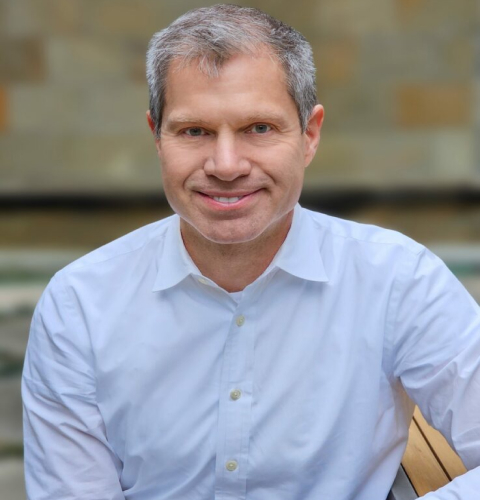Acupuncture, at its best, can feel like magic. A few carefully placed needles, a moment of stillness, and a dull ache vanishes. As practitioners, we’re drawn to this medicine for that reason, the chance to help, to heal, to participate in transformation. But what happens when it doesn’t work? What happens when needles meet resistance not just in tissue, but in the nervous system, the psyche, or the circumstance?
In a recent conversation between Dr. Mark Lewinter and Dr. Andrea Lewinter, acupuncturists at Metro Acupuncture in Atlanta, Georgia, and mother and son. They tackle a challenging topic: the three types of patients who often don’t respond well to acupuncture.
Rather than mystify or moralize, they ground their reflections in neurophysiology, psychology, and decades of clinical experience.
1. Patients Involved in Litigation: The Biochemistry of Chronic Stress
Litigation is inherently stressful. When a person is navigating a personal injury or workers’ compensation case, their nervous system often exists in a prolonged “fight or flight” state. The sympathetic nervous system is overactive, flooding the body with cortisol and norepinephrine. These stress chemicals inhibit the parasympathetic response, the very state acupuncture seeks to activate for healing and repair.
Beyond biochemistry, litigation can introduce what psychologists call secondary gain: the unintentional rewards of remaining injured, such as financial compensation or emotional attention. These dynamics can unconsciously reinforce pain behaviors via the limbic system, particularly the amygdala and anterior cingulate cortex, both of which regulate emotion and pain perception. Functional MRI studies confirm that unresolved emotional stress amplifies pain signals, making the benefit of acupuncture less effective.
“Sometimes the pain isn’t just physical—it’s wired into the stress of the case itself,” Dr. Andrea Lewinter observes.
2. Patients Coerced Into Care: When the Mind Says No
The second group are those who come to acupuncture unwillingly, dragged by a spouse, encouraged by a parent, or sent by a doctor. These patients may arrive with crossed arms and furrowed brows, not malice but resistance. And resistance is a potent antidote to healing.
Acupuncture’s effects are mediated not just through the body, but through belief, expectancy, and emotional openness. The prefrontal cortex, the seat of anticipation and meaning, modulates the brain’s pain circuits. When it’s not engaged, the body’s endogenous painkillers like endorphins and serotonin remain dormant.
“It’s not about belief in acupuncture,” Dr. Andrea Lewinter clarifies, “It’s about being open to the experience.”
In such cases, less is often more. Fewer needles, less explanation, more listening. When a patient feels heard and safe, defenses soften. Occasionally, even the most skeptical patients leave surprised by the shift in how they feel.
3. Patients on Long-Term High-Dose Opioids: A Chemistry of Contradiction
The final group discussed are those on chronic, high-dose opioid medications. These patients often suffer from opioid-induced hyperalgesia, a condition in which the nervous system becomes more sensitive to pain, not less. Neuroadaptations, like the upregulation of NMDA receptors and activation of glial cells create an environment where pain is amplified rather than soothed.
Furthermore, these patients may have downregulated their own internal pain-relief systems. Acupuncture typically stimulates the body’s production of natural opioids (like beta-endorphins) and serotonin. But in long-term opioid users, those receptor pathways may be desensitized or damaged, muting acupuncture’s usual efficacy.
“This one breaks my heart,” Dr. Mark reflects. “They were given medication to help, but now it makes healing harder.”
Still, some patients on opioids do find relief. And for those individuals, the win is profound. But expectations must be calibrated and the biology respected.
The Takeaway: Healing Is Personal, Not Predictable
Drs. Mark and Andrea Lewinter reminder their patients: acupuncture is personalized medicine. While patterns and probabilities guide their work, each patient is unique. Even among the three challenging populations discussed, they’ve seen breakthroughs.
Understanding the limitations doesn’t mean giving up, it means setting realistic expectations, fostering trust, and working with the body’s natural processes, not against them.
For anyone considering acupuncture, Metro Acupuncture offers compassionate, thoughtful care. If you’re facing chronic pain, stress, or uncertainty, a conversation may be the first step toward clarity, even if the road is winding.
-
Mark A. Lewinter, DACM, L.Ac. has a Doctor of Acupuncture and Chinese Medicine degree from Pacific College of Health and Science and a Master of Science degree in Oriental Medicine from Southwest Acupuncture College. His interest in studying East Asian Medicine started at age thirteen when he was diagnosed with cancer. While undergoing chemotherapy, he also incorporated alternative medicine to facilitate his recovery.
View all posts
